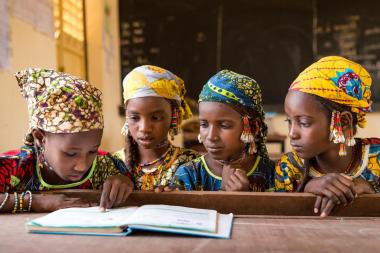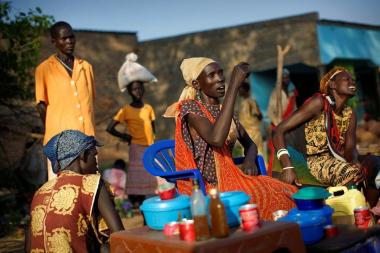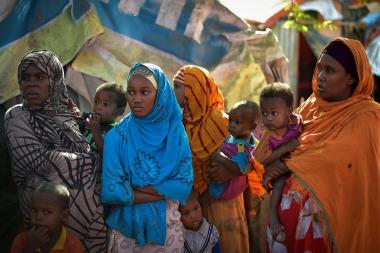Journal article
A review of gender in agricultural and pastoral livelihoods based on selected countries in west and east Africa
This paper presents the results of a review of the landscape of research on gender and agricultural and pastoral livelihoods in west and east Africa published between January 2016 and March 2021.
Publisher Frontiers in Sustainable Food Systems
This scoping paper presents the results of a review of the landscape of research on gender and agricultural and pastoral livelihoods in select countries in west and east Africa (Burkina Faso, Chad, Eritrea, Ethiopia, Kenya, Mali, Mauritania, Niger, Nigeria, Sudan, South Sudan, Somalia, and Uganda) published over 5 years (January 2016–March 2021). A keyword search of the Scopus database gave rise to an ultimate dataset of 169 papers which were coded for geographical location, approaches to gender, and theme based on inductive identification of clusters of research.
There has been an increase in the number of published papers but there is an uneven geographical distribution of research. Studies vary in the way they treat gender: with an almost even split between modelling-based studies, where gender is one of many variables to be correlated with, or to determine, an outcome (e.g., poverty—for example, as a dummy variable in regressions); and studies where the expressed aim is to look at gender differences, whether through the gender of an individual or the gender of a household head.
Clusters of papers look at gender differences in assets, health, perceptions of environmental degradation, agricultural perceptions and outcomes, and climate change perceptions, vulnerability, and adaptation. There is also a number of papers exploring women's empowerment, including intra-household decision-making. Intersectional approaches have been employed both through modelling studies and through more in-depth qualitative studies that are able to trace changes in identity over time, and the implications therein.
The household and household headship have remained common entry points and units of analysis, despite known critiques. The results highlight a need to address geographical gaps in gender research, expand the evidence base of intersectional approaches, explore other aspects of social inequality, and expand more innovative methodological studies.
Citation: Vincent, K. (2022). A review of gender in agricultural and pastoral livelihoods based on selected countries in west and east Africa. Frontiers in Sustainable Food Systems. Vol 6 – 2022: https://doi.org/10.3389/fsufs.2022.908018.

Dareshe women, Ethiopia
Credit Image by Rod Waddington - CC BY-SA 2.0


